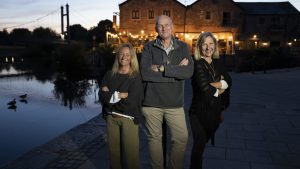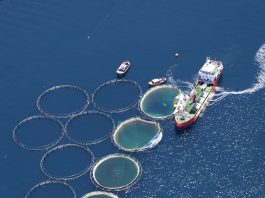Three scientists from the UK have been awarded the esteemed Volvo Environment Prize 2022 for their world-leading contributions to combatting pollution from microplastics.
The work of Professor Richard Thompson OBE, Professor Tamara Galloway OBE, and Professor Penelope Lindeque has been instrumental in highlighting the global issues of marine litter from microplastics during the last 20 years.
The researchers have helped pioneer changes in global policy and international government legislation, such as the United Nations Treaty on Plastic Pollution, signed by 175 nations earlier this year.
Professor Thompson, Head of the International Marine Litter Research Unit at the University of Plymouth, said: “We are all delighted and deeply honoured to be this year’s Volvo Environment Prize laureates and to get such recognition is wonderful for our teams and us. Our collaborations over the past two decades are a perfect example of the joined-up thinking required to address the global issue of microplastic pollution. We want our science to be beneficial to society and to protect our marine environment for future generations.”

The scale of microplastic pollution in marine environments
Statistics from EARTHDAY.ORG’s ‘Plastics in the Ocean’ fact sheet reveal the colossal challenge posed by microplastic pollution worldwide. The research highlights that microplastics are prevalent globally in almost all water systems, including streams, lakes, rivers, and oceans. To put this into context, there are more microplastics in the ocean than stars in the Milky Way.
The equivalent of two garbage trucks of plastic is dumped into the ocean every minute, which is expected to grow to 29 million metric tons of plastic pollution annually by 2040. Moreover, by 2050, more plastic will be in the ocean than fish (by weight). This puts marine life in danger, as currently, around one million marine organisms are killed due to plastic pollution each year.
The winners of the Volvo Environment Prize 2022
Since 1990, the Volvo Environment Prize has been awarded annually. It is one of the world’s more respected environmental prizes, with this being only the fourth time since its inception that the prize has been awarded to UK scientists.
Professor Thompson’s first study, published in 2004, paved the way for microplastics research. Since then, the three laureates have made significant breakthroughs in understanding the effects of microplastics and particulate pollutants on marine organisms and human health.
The researchers have illuminated that microplastics are prevalent from the pole to the equator and from the highest mountains to the deepest trenches of the sea, also tracking their sources, including plastic bags, microbeads in cosmetics, and tyre particles. They have demonstrated how these travel through wastewater and rivers, impacting marine species and entering the human food chain.
The scientists have also investigated potential solutions for microplastics, including natural and mechanical measures, to eradicate plastics from marine environments and are continuing to collaborate with industry and policymakers to improve the design of plastic products and their use.
Professor Lindeque, Head of Science: Marine Ecology and Biodiversity at Plymouth Marine Laboratory, commented: “The South West of England has always been at the forefront of plastic research. The three of us have enjoyed an incredible interdisciplinary working relationship for many years, as have our teams of ecologists, economists, chemists, mathematical modellers, chemical engineers, and remote-sensing scientists. This bringing together of minds across disciplines has allowed us to look at the wider picture. It has meant we can assess the problem, develop novel analysis techniques, challenge the status quo, and look towards solutions.”
Professor Galloway, who leads the plastics research team at the University of Exeter, concluded: ‘’Achieving what we have achieved has only been possible due to the many scientists, students, and collaborators who have been and continue to be involved in this work around the world. Everyone who has contributed to this field of research is helping bring about positive change for the whole of society, and this award recognises all of them.”





